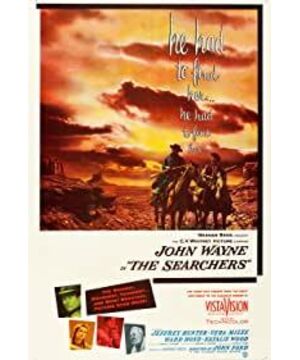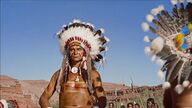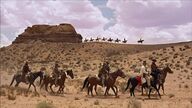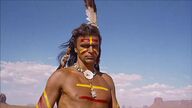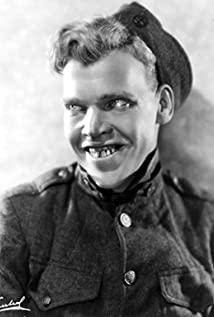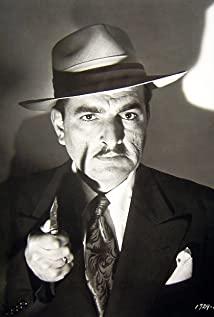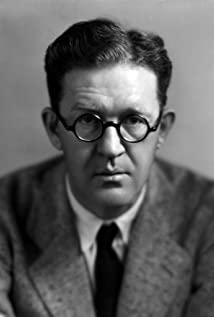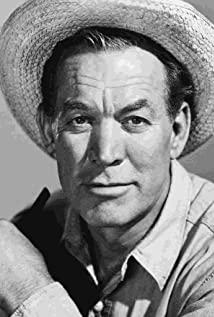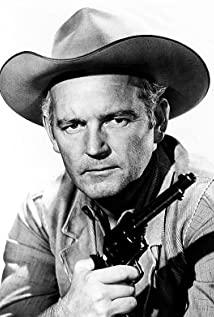When westerns entered the color era, they still had a strong taste of John Ford: deserts, small people, exaggerated performances, group battles, confrontation between whites and Indians, dramatic soundtracks, exquisite composition... even Repeated scenes of Indians riding across the river to fight.
I have to say that after 20 years, John Ford’s racial discrimination has weakened a bit, and even has a color of self-reflection, whether it is the protagonist Martin who has half the celebrity blood, or the simple and kind celebrity who loves Martin in the film. The girl, or the explicit display of the cruel scene of the white army looting the Comanche in the film, can see that Ford's reflection and transformation of his own racial concept, full of humanistic care. This is a story of seeking relatives and revenge. The prodigal son in the desert, trying to find the Indian who killed his brother and sister-in-law, and the niece who has been missing for many years. The protagonist of the film Ethan is a very racially discriminatory person. He hates the Indians. Deep into his bones, but facing his niece who had assimilated with the Indians, he put down the loaded gun in front of the cave symbolizing "civilization and barbarism", gave his niece a hug, and brought her back to civilized society. .
Early westerns always gave me a very melancholy feeling. After watching it, I still felt a little bit unsatisfied. I watched the cowboy in the film finally disappear into the vast desert, as if I could touch the desert in my heart. Suitable for one person to watch the sunset in the evening...
View more about The Searchers reviews


